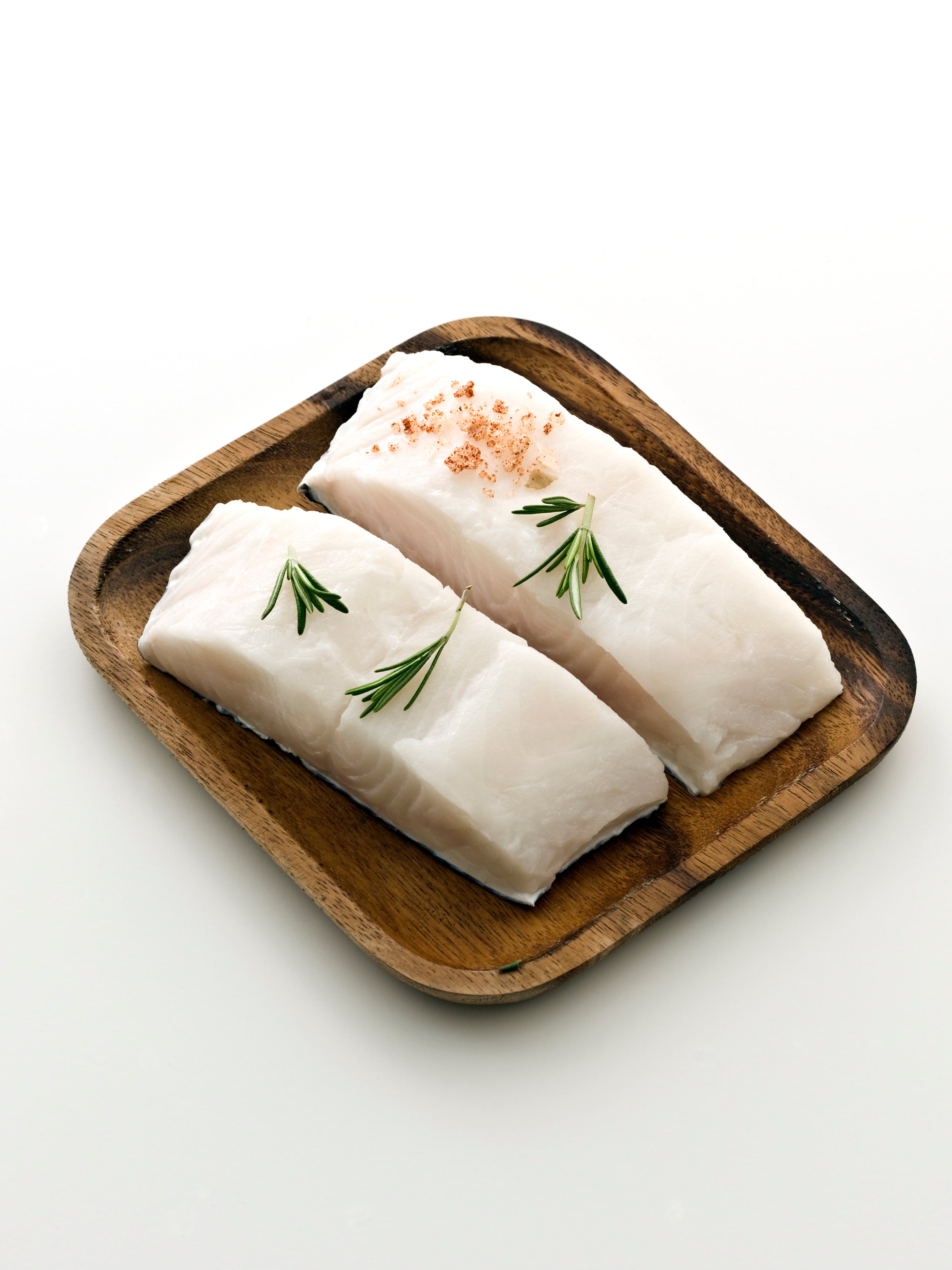Fresh Wild Porcini Mushrooms
Fresh Wild Porcini Mushrooms
What are Porcini Mushrooms?
Porcini mushrooms are highly coveted in the culinary world for their exceptional flavor and texture. Originally popularized in Italy, these mushrooms grow abundantly throughout the Northern hemisphere, where they are carefully hand-gathered during summer and autumn.
Despite their popularity, cultivating porcini mushrooms poses challenges due to their mycorrhizal nature, i.e. forming symbiotic relationships with the roots of neighboring trees, typically conifers, where they aid in nutrient absorption for the tree while obtaining sugars for their own sustenance.
A true gift within our home area, the Pacific Northwest, our fresh wild porcini mushrooms exude a delicate aroma, complementing their intense delicious nutty flavor. Their flesh is tender and becomes more fibrous with age, offering a unique chewy culinary experience.
Scientifically known as Boletus edulis, porcini mushrooms are a favorite among chefs worldwide. They have several common names across different regions, such as the king bolete, cèpe (France), penny bun (England), and belly mushroom (Spain). They got their common name from Italy, where they are called porcino, which comes from the word “porcine,” or pig.
Beyond their exquisite flavor, porcini mushrooms pack a nutritional punch. They are rich in vitamins A, C and B; several key minerals, including potassium, calcium and iron; dietary fiber, antioxidants, and protein. These would benefit any diet, but especially vegetarian and vegan. Moreover, they offer various health benefits, including improved digestive health, weight loss support, inflammation reduction, and potential anticancer properties.
A Little History
Porcini mushrooms have a long history, dating back to ancient times when both Greeks and Romans recognized their culinary potential.
The first scientific description of porcini mushrooms dates back to 1782, when French botanist Pierre Bulliard gave it its current botanical name. Since then, porcini mushrooms have remained valued by gourmet chefs for their culinary versatility.
Whether enjoyed fresh or dried, porcini mushrooms elevate dishes to new heights, earning their reputation as the “crown jewel of wild fungi”.
Nutritional Profile
Porcini mushrooms offer an array of nutritional benefits, making them a valuable addition to any diet. One cup of chopped mushrooms is considered the typical serving size; and this serving size provides an abundance of the following nutrients, while adding very few calories (about 25-30), and almost no fat:
Protein:
Porcini mushrooms are surprisingly rich in protein, especially for a vegetable. Protein is essential for building and repairing tissues, supporting immune function, and maintaining healthy skin, hair, and nails.
Fiber:
These mushrooms are also a good source of dietary fiber, which plays a crucial role in digestive health. Fiber aids in digestion, helps prevent constipation, and may contribute to weight management by promoting feelings of fullness and reducing overall calorie intake.
Vitamins:
Porcini mushrooms are packed with various vitamins, including:
Vitamin B1 (Thiamine): Important for energy metabolism, nerve function, and maintaining a healthy nervous system.
Vitamin B2 (Riboflavin): Essential for energy production, growth, and red blood cell formation.
Vitamin B3 (Niacin): Supports proper digestion, nerve function, and skin health.
Vitamin B5 (Pantothenic Acid): Required for the synthesis of hormones, cholesterol, and neurotransmitters.
Vitamin B6 (Pyridoxine): Involved in protein metabolism, immune function, and cognitive development.
Minerals:
Porcini mushrooms are rich in the following minerals:
Potassium: Important for maintaining fluid balance, muscle contractions, and nerve signals.
Copper: Necessary for the production of red blood cells, energy metabolism, and connective tissue formation.
Selenium: Acts as an antioxidant, helping protect cells from damage caused by free radicals.
Phosphorus: Essential for bone health, energy production, and DNA synthesis.
Iron: Essential for oxygen transport, energy production, and immune function.
Antioxidants:
Porcini mushrooms are rich in antioxidants, including the amino acid ergothioneine, the mineral selenium, and many polysaccharides and phenolic compounds.
These antioxidant compounds help protect cells from oxidative stress, and help to manage oxidative damage caused by cancers, inflammatory and heart diseases, and diabetes.
This deep nutritional profile provides a very impressive list of health benefits:
Helps Reduce Inflammation
Chronic inflammation is associated with a wide range of health problems, from rheumatoid arthritis and asthma to peptic ulcer disease. It has also been shown to contribute to the development of chronic diseases, such as cancer, heart disease and asthma.
Studies have found that the antioxidants in porcini mushroom contain potent anti-inflammatory properties that can help decrease symptoms of certain inflammation-related conditions.
Enhanced Immune Function:
The vitamins and minerals in porcini mushrooms, particularly vitamin B6 and selenium, play a role in supporting a healthy immune system, helping the body fight off infections and illnesses.
May Kill Colon Cancer Cells
One of the most impressive benefits of porcini mushrooms is their potential effect on colon cancer. In fact, a study published in 2016, as well as a 2017 research paper, found that regular consumption of these mushrooms can help to kill colon cancer cells. Reports are that the ribonucleic acid (RNA) found in porcini mushrooms can block the growth and spread of colon cancer cells.
Additionally, porcini mushrooms are a high-fiber food, which may be protective against colorectal cancer. Several studies have found that increased fiber intake is associated with a decreased risk of colorectal cancer.
Promote Digestive Health
Thanks to their high fiber content, (2 grams of fiber in every 100-gram portion), porcini mushrooms can improve digestive health, prevent constipation and boost regularity.
As fiber moves through the body, it adds bulk to stool and eases its passage to reduce constipation. Various studies demonstrate that dietary fiber is effective in increasing stool frequency for those with constipation.
Increased fiber intake also benefits the digestive system in other ways, including gastroesophageal reflux, diverticulitis and peptic ulcer disease. Research also shows that porcini mushrooms help with gut microbiota modulation, which benefits digestion overall.
Weight Management
Since the porcini mushroom is low in calories but loaded with fiber and protein, it is a valuable tool for any weight loss program.
Fiber moves through the gastrointestinal tract undigested, promoting fullness and keeping our appetites under control.
Protein, on the other hand, can help increase weight loss in several ways: it helps decrease levels of certain hormones that stimulate hunger, such as ghrelin, boosting metabolism and reducing total calories consumed.
Protein also requires more calories to digest than carbohydrates or fat, meaning that smaller amounts of usable calories are consumed when you eat high-protein foods like porcini mushrooms than foods high in fat or carbohydrates.
Maintaining Muscle Mass
Protein rich foods like porcini mushrooms provide additional health benefits that include the maintenance of muscle mass and tissue building and repair.
Culinary Uses
Porcini mushrooms are among the best choices to add to your culinary arsenal. Their heavenly aroma, versatile savory flavor and chewy texture make them the perfect companion to almost any ingredient. Moreover, almost any cooking method works, from simmering to roasting, so do not be afraid to experiment! Here are some common ways to prepare and enjoy them:
Sautéed: Porcini mushrooms can be sautéed with garlic, butter, and herbs to bring out their flavor. They can be served as a side dish, incorporated into pasta dishes, or used as a topping for pizza and risotto.
Grilled or Roasted: Grilling or roasting Porcini mushrooms enhances their earthy flavor and adds a smoky dimension to dishes.
Soups and Stews: Porcini mushrooms are excellent additions to soups, stews, and broths, where they impart their rich flavor to the dish.
So why wait?
With their delicate aroma, savory taste, and chewy texture, our fresh wild porcini mushrooms are a delicious way to jazz up the flavor of just about any dish while also adding great nutrition and health benefits.
From porcini pasta to stews and soups, it’s clear that this powerful mushroom can be a great way to help take your meals and your health to the next level.
=================================================================
References Utilized for this Blog
https://www.shroomer.com/porcini-mushrooms/#how-does-boletus-edulis-look
https://www.organicfacts.net/porcini-mushrooms.html
https://www.eatingwell.com/article/7676771/what-are-porcini-mushrooms/
https://www.thespruceeats.com/porcini-mushrooms-funghi-porcini-3955187


